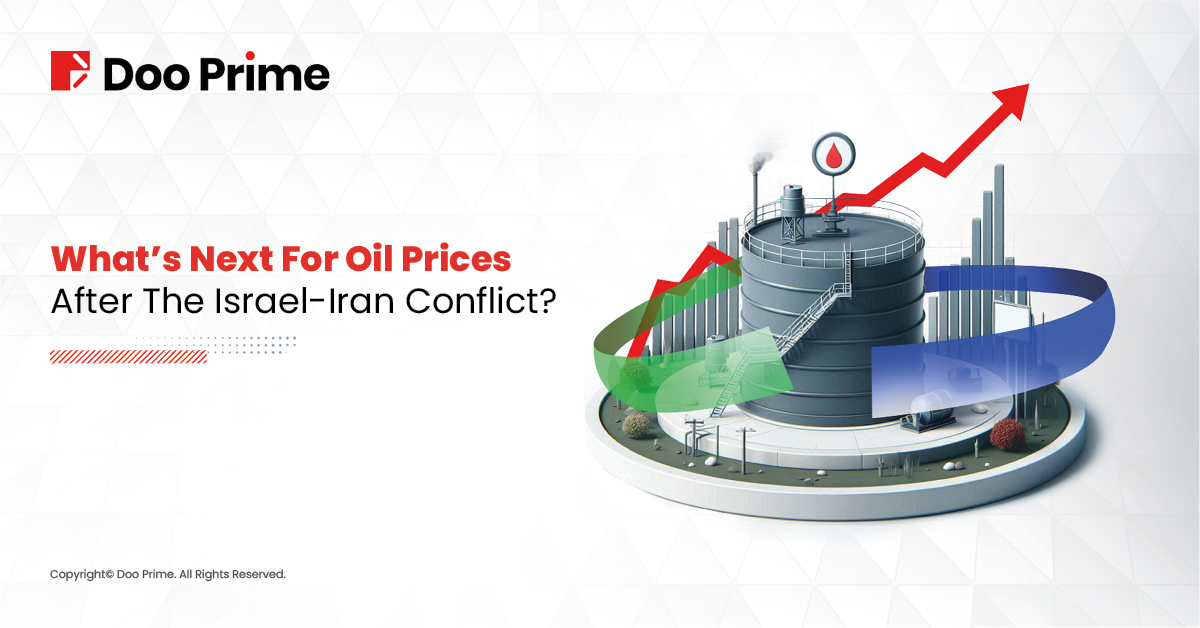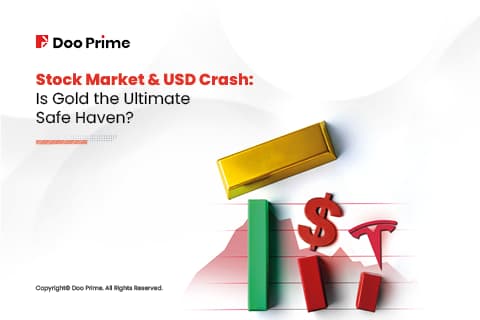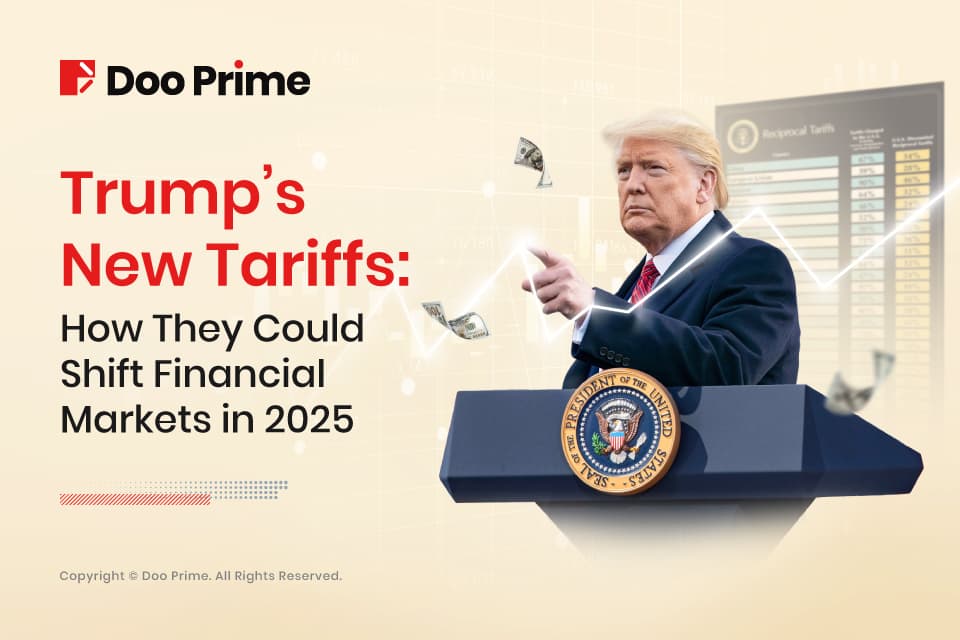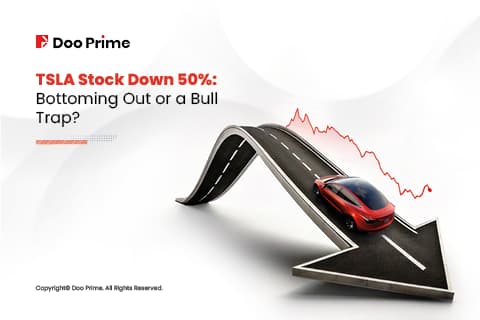
The recent Israel-Iran conflict might have you picturing oil prices soaring through the roof. But before you panic-buy, let’s take a deep breath and analyze the situation.
This article explores two perspectives. First, we examine why oil prices might not skyrocket as much as some fear. Then, we tackle the opposite scenario: what kind of catalyst could push crude oil above $100 a barrel?
Why might the Israel-Iran Conflict not spike Oil above $100 a barrel?
1. Taking Out Production is a Big Ask
Disrupting oil production with airstrikes is not possible. To significantly impact global supply, it requires a full-blown ground invasion – something highly unlikely. Here’s why:
- Resource Constraints: Launching a major ground war is a resource-intensive endeavor. Few countries have the military and political capital to pull it off.
- Saudi Arabia Holds the Key: While Iran is a major oil producer, the real heavyweight is Saudi Arabia. And with Saudi interests not threatened, their production remains stable.
Moreover, according to Crude oil analyst, the current oil price already includes a risk premium of $5-$10 per barrel to account for recent geopolitical tensions.

The above chart illustrates that the global spare production capacity remains relatively high. Based on these factors, Goldman Sachs believes the price of Brent crude will stay capped at $90 per barrel, barring any further disruptions to global oil supply. This offers some protection against further price spikes.
2. Blockading the Strait of Hormuz? Not So Fast
The Strait of Hormuz, a critical shipping lane for oil, has been a source of worry during past conflicts. But consider this:
- History Repeats Itself: Even during the US-Iran war in the 1980s, the Strait remained open for business. Disrupting it would be a risky move for Iran.
- Shooting Themselves in the Foot: Blocking the Strait would cripple Iran’s own oil exports, a vital source of income. It’s simply not in their economic or political best interest.
Now, let’s address the elephant in the room.
What could push oil prices above $100 a barrel?

According to the chart above, the low P/E (price-to-earnings) ratio for US oil, gas, & consumable fuels is historically cheap relative to the broad market. This could be a factor to consider when evaluating the risk of higher oil prices. However, it’s important to remember that a low valuation doesn’t automatically guarantee a price surge, but rather a disconnect between the current oil price and investor expectations of future profitability for oil companies.
Other possible catalysts to potentially push oil above $100/barrel are:
- OPEC+ May Cut Deeper: The oil producer alliance could restrict output further if political tensions rise.
- Infrastructure Woes: Damage to oil production, transportation, or refining facilities could disrupt supply. Similar, but more severe, to the recent disruptions to Russian refineries due to the Ukraine war.
- Iran’s Oil Future Uncertain: If Iranian oil supply declines due to internal disruptions or a change in US monetary policy, prices could rise.
- The (Highly Unlikely) Worst-Case Scenario: A complete closure of the Strait of Hormuz would undoubtedly cause a major price surge. However, Goldman Sachs considers this a low-probability event.
Crude Oil Technical Analysis

The recent attack by Iran on Israel didn’t significantly impact oil prices because the market had already factored in the potential for geopolitical risk in the region.
Countries in the Gulf region are currently undergoing significant economic transformation, and they have a strong incentive to avoid conflict that could disrupt this progress.
Our current outlook for oil prices remains stable, with Brent crude expected to reach the heavy supply area (major resistance), which is between $90-$92, in the second half of 2024.
If price remains above the 200 weekly SMA (blue line), the bulls will be in control. Only a break below the SMA will trigger a deep market sell-off, like the 2020 scenario.
The Takeaway from the Israel-Iran conflict
While geopolitical tensions can create temporary price spikes, fundamental factors suggest a major oil price rally is unlikely. The Middle East countries themselves have strong incentives to maintain stability, and a complete shutdown of the Strait of Hormuz is not in their best interest.
Risk Disclosure
Trading in financial instruments involves high risks due to the fluctuation in the value and prices of the underlying financial instruments. Due to the adverse and unpredictable market movements, large losses exceeding the investor’s initial investment could incur within a short period of time. The past performance of a financial instrument is not an indication of its future performance. Investments in certain services should be made on margin or leverage, where relatively small movements in trading prices may have a disproportionately large impact on the client’s investment, and client should therefore be prepared to suffer significant losses when using such trading facilities.
Please ensure you read and fully understand the trading risks of the respective financial instrument before engaging in any transaction with Doo Prime’s trading platforms. You should seek independent professional advice if you do not understand any of the risks disclosed by us herein or any risk associated with the trade and investment of financial instruments. Please refer to Doo Prime’s Client Agreement and Risk Disclosure and Acknowledgement Notice to learn more.
Disclaimer
This information is addressed to the general public solely for information purposes and should not be taken as investment advice, recommendation, offer, or solicitation to buy or sell any financial instrument. The information displayed herein has been prepared without any reference or consideration to any particular recipient’s investment objectives or financial situation. Any references to the past performance of a financial instrument, index, or a packaged investment product shall not be taken as a reliable indicator of its future performance. Doo Prime and its holding company, affiliates, subsidiaries, associated companies, partners and their respective employees, make no representation or warranties to the information displayed and shall not be liable for any direct, indirect, special or consequential loss or damages incurred a result of any inaccuracies or incompleteness of the information provided, and any direct or indirect trading risks, profit, or loss arising from any individual’s or client’s investment.



